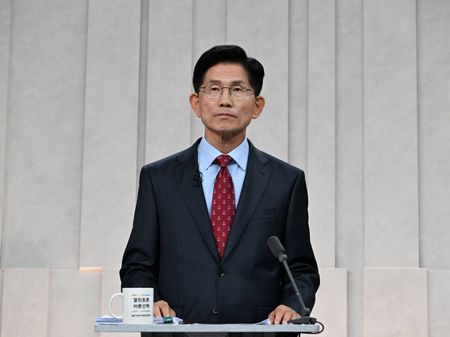PARIS (Reuters) – Airbus delivered 766 jets in 2024 and looked certain to maintain leadership of the jetmaking industry for a sixth year as arch-rival Boeing recovers cautiously from a prolonged internal crisis, company data showed on Thursday.
The European planemaker fell fractionally short of its target of “around 770” jets but said it had met the goal after giving itself a margin for error as global supply chains remain hampered by parts and labour shortages.
Jefferies analyst Chloe Lemarie said the missing four aircraft were small A220 models, leaving deliveries of the widely used larger models in line with expectations.
Overall deliveries, which confirmed a figure previously reported by Reuters, marked a slowdown in Airbus’ industrial recovery from the pandemic, with annual growth more than halving to 4% from 11% a year earlier.
Although Boeing has yet to report annual data, a cautious ramp-up and regulatory curbs following a mid-air blowout on an Alaska Airlines jet one year ago had already left an unbridgeable gap between Boeing and Airbus deliveries for 2024.
Analysts say the two planemakers continue to compete aggressively for new orders, however.
Airbus posted 878 gross orders or a net total of 826 after cancellations, down 61% from a record 2023. By the end of November, Boeing had 370 net orders after cancellations.
Aerospace supply chains have been under pressure due in part to an exodus of experienced workers during the pandemic, with aviation competing with other sectors to recruit new labour.
Global tensions have also hit supplies of raw materials.
Deliveries are the backbone of planemaker finances because that is when most revenue is generated.
But the industry also pays close attention to underlying production rates for workhorse single-aisle jets, which set the industrial pulse in a network of thousands of suppliers.
Christian Scherer, CEO of the France-based company’s core commercial planemaking business, said he remained confident that Airbus can reach a target of producing 75 single-aisle A320-family jets a month at some point in 2027. But he cautioned there is more work to be done in fixing supply chains.
Supplies of engines, interiors and aerostructural parts remain among pressure points in the wider supply chain.
Industry sources say Airbus is currently producing close to 60 single-aisle jets a month, up from around 50 a year ago.
Deliveries of wide-body A350 jets fell 11% compared to the previous year when volumes had been supported by handing over about 10 planes previously held in inventory following sanctions against Russia and a major legal dispute with Qatar Airways.
Scherer told Reuters that underlying A350 production had risen in 2024, without giving any numbers.
(Reporting by Tim Hepher; Editing by Makini Brice and Rod Nickel)










